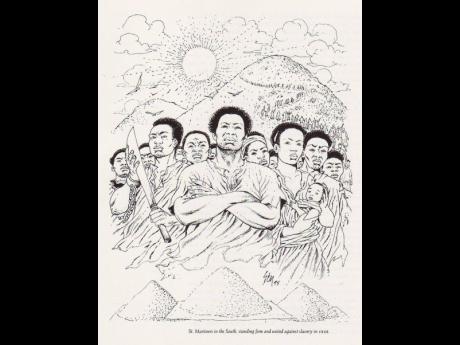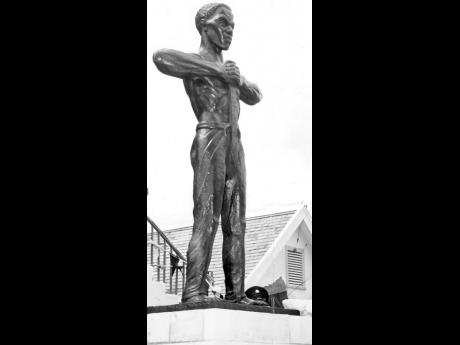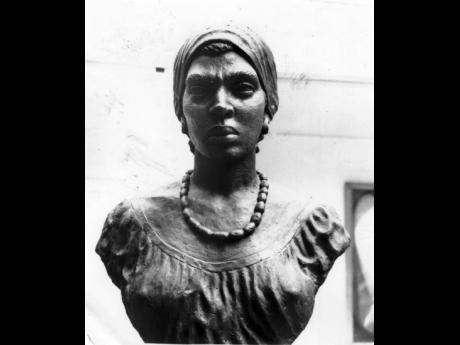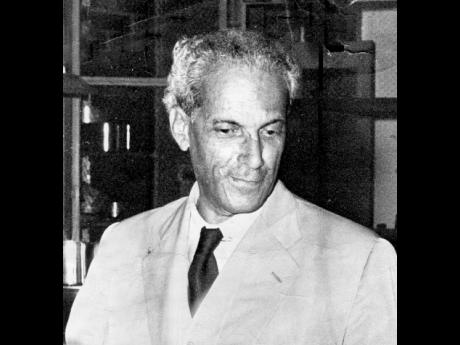Meeting ground: National Heroes’ Day Edition
October 19 is National Heroes’ Day in Jamaica, and as the poems below remind us of people in the past who fought for freedom, whether from all forms of slavery, or colonialism, they also remind us that there are heroes today still fighting for the same things.
While Mervyn Morris encourages us to ‘mine history for the energy it frees’ and eulogises the Guyanese political historian and activist, Walter Rodney; Allen and Baugh celebrate Jamaica’s freedom fighters and honour the dead from the Middle Passage; Rachel Manley gives us a glimpse of her nation-building grandfather, Norman, and mourns Marley’s passing.
We, also, through Lasana M. Sekou, from St Martin, are reminded that even Caribbean neighbours are still on that journey to independence.
Let’s honour our heroes in their many manifestations.
Mine history
for the energy it frees.
Do not spend precious time
hanging from family trees.
Mervyn Morris (Jamaica)
Peelin Orange: Carcanet Press: 2017
Sometimes in the middle of the story
(for the drowned Africans of the Middle Passage)
Sometimes in the middle of the story something
move outside the house, like
it could be the wind, but is not the wind
and the story-teller hesitate so slight
you hardly notice it, and the children
hold their breath and look at one another.
The old people say is Toussaint passing
on his grey horse Bel Argent, moving
faster than backra-massa timepiece
know to measure, briefing the captains
setting science and strategy to trap the emperor.
But also the sound had something in it
of deep water, salt water, had ocean,
the sleep-sigh of a drowned African
turning on his sleep on the ocean floor,
and Toussaint’s horse was coming from far
his tail trailing the swish of the sea
from secret rendezvous, from councils of war
with those who never completed the journey,
and we below deck heard only the muffled
thud of scuffling feet, could only
guess the quick, fierce tussle, the
stifled gasp, the barrel-chests bursting
the bubbles rising and breaking, the blue
closing over. But their souls shuttle
still the forest paths of ocean
connecting us still the current unbroken
the circuits kept open, the tireless messengers,
the ebony princes of your lost Atlantis,
a power of black men rising from the sea.
Edward Baugh (Jamaica)
Black Sand: Peepal Tree Press:2013
Nanny knew
her terracotta
skin knew mountain dirt,
knew hurt
from slavers
who traded guns
for bruised black bodies
Nanny knew
sweltering slave ships
Akan women groaning,
summoning ancestors, and their
mba marimma, their mba mmaa
across the Atlantic Sea,
sons and daughters yet to be born
women daring to dream still-
born dreams
Nanny knew
blood-shed cloths
of blooded history, marooned
she knew branding, knew
sun-hot shackle,
knew knees on her neck
But Nanny, she made the red jackets
squeal in fear of Blue Mountain bush,
and guerilla tactics,
led the way women lead,
her indomitable
spirit, an abeng
sounding,
still.
Tricia Allen (Jamaica)
Memory
The afternoon belongs to my grandfather.
You cannot take it away
though the mind darkens
and the children’s laughter
has strayed like messages.
I am near the verandah,
lost in my nets of thought
which I brought from age six,
a very long way.
You cannot sentence memory to death,
it returns through the years
lulled into hymns.
If I close my eyes
Time will forget me;
I hear an old lady reading from Rilke,
she finds the best line
and explains
that poets don’t have to rhyme anymore.
If I close my eyes
my hands will forget me,
I’m up in the plum tree
near to the sky;
if I leave, I’ll never come back.
Here in this distance, birds fly,
they fly, but they do not sing.
The night waits in the house
safe and peaceful as candles
or carts pulled by trusty mules;
My grandfather waits in the house.
You know, the moon is just a violin
that longs to be repaired.
Rachel Manley (Jamaican in Canada)
A Light Left On: Peepal Tree Press: 1992
Bob Marley’s dead (for drum)
The moon is full
heavy yellow
Marley’s dead
and there is prophecy
Halelujah
Jah is singing on the moon
and all our pain
is like the shadow of a branch
across its face:
it’s not the King who lives
long live the King
it is the Kingdom lives
My island is a mother
burying wombs
I rise, at my beginning
the squalor
the flower
The moon is dread
she bleeds
Marley’s dead
and there is prophecy
The Kingdom lives
a heart of drums
a small town throbs,
we have begun
the phoenix
from a mulch of bones
I rise beyond
a fantasy
I wake
I break faith
with the white dream
The moon is black
my mother sings with me
Oh Marley’s dead
and there is prophecy.
Rachel Manley
A Light Left On: Peepal Tree Press: 1992
My Rodney poem
for Eddie Baugh
& in memory of Walter
I
He lived
a simple life
He was a man
who cared
when anybody hurt
not just the wretched
of the earth
He dared to be involved
in nurturing upheavals
II
Frustrated by
the host of evils
he seemed to me a good
man reaching for the moon
He died
too soon
Mervyn Morris (Jamaica)
Peelin Orange: Carcanet Press: 2017
1848
once cheated of just a few centuries of days
(from may to july it might have been, but who knows)
forebears got on like somebody stole them from the world
(there were people then too asking them:
‘buh woi ah yu’goin’ on so fuh?’)
but standing their moment, claimed for us all,
some small momentous claim for humanity,
they sang to what they had known:
ah we been a hearum
buh massa been a hidum
now we hear dis here today
where it appears in this guise
to be or to be a wandering waste of wondering:
serve the satan of colonialism—
all unto ceasar, all breathlessly shameless?
serve the god of independence—
all unto the land of the lord and be his one people?
here still the mimic so many ah we still do well
the fashion ho hum of the fe, fi, fo, fum.
here again comes and goes time rushing by/
some will hide in church to pray. some will plan a runaway
from estate to state. from terrortory to our story/
who not yet heard from will sing in love with me this time
to dream and reason in the nation/
who else is there to mix the mortar of mind and matter
sprinkle with the pick of flamboyant victories
rear and raise more manmaking histories?
become known.
Lasana M. Sekou (St. Martin)
37 Poems: House of Nehesi Publishers:2005




